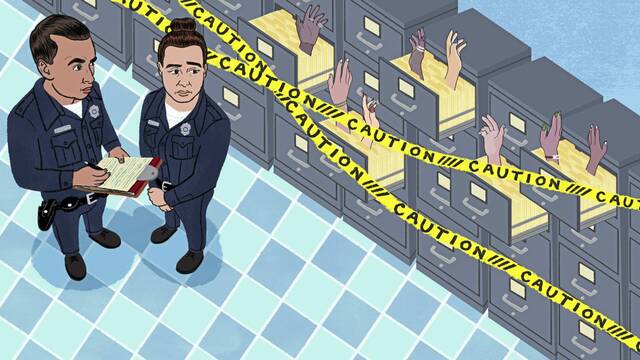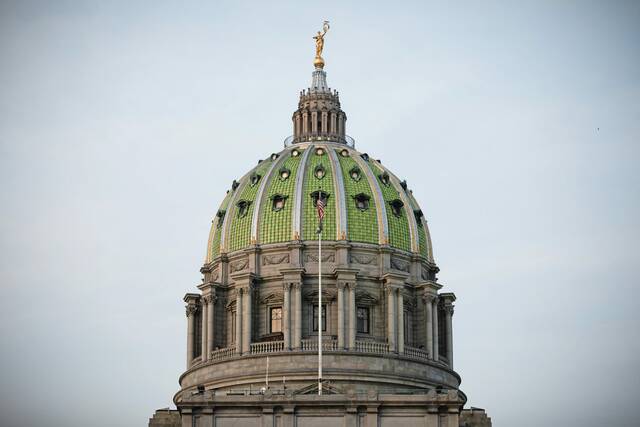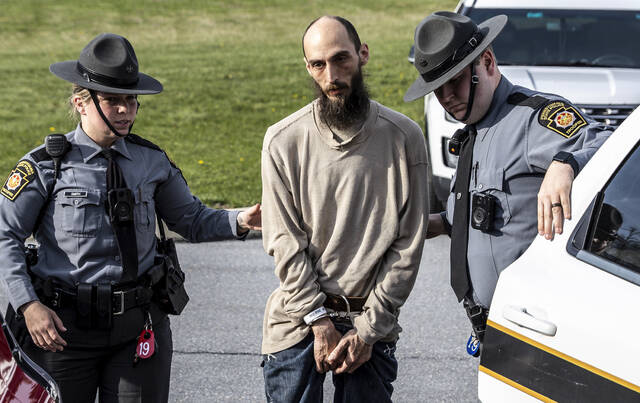The Pennsylvania Supreme Court on Wednesday heard arguments over the state Medicaid program’s coverage ban on abortion.
Under the 1982 Abortion Control Act, passed by the Pennsylvania legislature, Medicaid prohibits reimbursement for abortions in all instances other than to prevent the death of the woman or in the case of rape or incest.
In January 2019, a group of seven abortion providers across Pennsylvania, including Allegheny Reproductive Health, filed a petition arguing that the act violates Pennsylvania’s Equal Rights Amendment because it discriminates based on sex.
The Commonwealth Court last year dismissed the petition, and the groups appealed to the state Supreme Court.
On Wednesday, five of six justices heard oral arguments for more than two hours on the highly anticipated case.
Although the argument technically revolves around the question of Medicaid funding, it comes just a few months after the U.S. Supreme Court overturned Roe v. Wade, and just 13 days before a general election where abortion rights are very much at the center of debate.
“This is a particularly salient moment in history for the court to provide guidance,” said Susan Frietsche, interim co-executive director of the Women’s Law Project, who argued the constitutional claims.
She told the court that reproductive autonomy is a fundamental right. And because the state’s Abortion Control Act applies only to women, it is sex-based discrimination that violates equal protection under the law.
“The words of the Equal Rights Amendment are unqualified — ‘equality of rights shall not be denied or abridged on account of sex,’” she said. “We are dealing with the fundamental right of reproductive autonomy.”
But Justice Sallie Updyke Mundy responded, “We’re not dealing with a fundamental right. We’re dealing with a funding case.”
Frietsche replied that she was not arguing that the government is required to pay for every abortion.
“Pennsylvania does not have to have a medical assistance program,” she said. “But if it chooses to have one, it cannot have sex-based discrimination.”
Although she focused on constitutional issues, Frietsche frequently addressed the individual consequences of the Abortion Control Act and called it an issue of “enormous public importance.”
“The Medicaid coverage ban has taken an extraordinarily harsh toll on women of color,” Frietsche said.
Although the petitioners did not file a race-based claim, she said, it is impossible to ignore the impact the ban has had along racial lines.
“Pennsylvania has got a particularly awful maternal mortality rate that has gotten worse and worse and worse,” she said. “It’s crushing communities of color who have historically endured legally sanctioned reproductive coercion.”
Justice Debra Todd said the case appears to focus more on indigent women who can’t afford abortion.
“This is not as much a gender issue as it is indigency,” she said.
Frietsche argued that the ban perpetuates gender inequality because it carves out specific procedures from comprehensive medical care. She told the court that 1 in 4 women will need an abortion.
“There is no comparable medical care men need that is individually carved out,” she said.
“It’s about coverage of health care — men get it, women do not,” Frietsche said. “It is a sex-based, unfair coverage scheme with catastrophic results in history that perpetuates gender norms.”
Mundy countered, “Can it be because men cannot have an abortion? Can that not be the rationale?”
Frietsche answered, “If you can give fewer benefits to anyone with a uterus, that’s sex-based discrimination.”
Minutes into the argument, Justice Kevin Dougherty asked, “How does it perpetuate gender stereotypes when only females can give birth?”
Frietsche responded by saying, “Women’s ability to reproduce, historically, has been at the root of discrimination — the myth of ‘proper place in the world,’ ‘the myth of fragility,’ ‘the myth of the ability to think,’ locking us out of professions.”
“I understand the history of gender discrimination,” Dougherty answered.
Later, he asked Frietsche if Pennsylvania’s Constitution provides all citizens the right to protect life.
“There is no more private or self-defining decision that affects the entirety of a person’s life … than their decisions around abortion,” she answered. “The Medicaid coverage ban is not the way to protect the state’s interest in protecting life.”
As part of their request, the petitioners are asking the court to overturn a unanimous, 1985 state Supreme Court decision upholding the Abortion Control Act.
“It’s a big challenge to ask our court to overrule a case that was unanimous,” Todd told Frietsche.
“This court has not hesitated to overrule previous decisions when constitutional rights are on the line,” Frietsche said.
Frietsche also told the court that the state Department of Human Services offers no argument other than that the court should follow precedent — which is exactly what attorneys representing several legislators argued.
Matthew Haverstick, who represented 16 state senators who sought to intervene in the case, said that the 1985 case is “durable” and “oft-cited.”
“It’s right,” Haverstick said. “Its analysis was on the money. There’s no good reason for this court to disturb that unanimous decision at this time.
“This is not a case about the right to abortion in Pennsylvania. It’s a funding case.”
The funding restriction, Haverstick said, is not based on sex, but based on the procedure itself.
Justice Christine Donohue countered with a philosophical question: “Don’t we have an Equal Rights Amendment because there are physical differences between men and women? Isn’t that its essence? If there weren’t, why are we talking about inequality otherwise?
“Only women can get pregnant. Only women can get an abortion. That’s all true. But so what,” she said.
Haverstick responded that the Equal Rights Amendment is designed to protect against stereotypes and discrimination, but not to take away the ability to distinguish between male and female characteristics.
“The commonwealth has a legitimate state interest in life, promoting life through live birth,” he said.
Because of that, he continued, there is a policy favoring birth over abortion — which is represented in the Abortion Control Act.
“Nothing the Abortion Control Act does puts a road block in front of a woman to prevent her from getting an abortion,” he said.
“Unless she’s poor,” Todd replied.
“The government doesn’t put that roadblock there,” Haverstick answered. “It’s encouraging alternative behavior. It’s not putting up roadblocks.”
The court also heard arguments on whether abortion providers and members of the state legislature have standing to participate in the case.
David R. Dye, who represents the House members, said the legislature has established that it has an interest in how funding is allocated, and in protecting human life. Therefore, he said, they should be allowed to participate in the case.
Donohue countered that, even if the court declares the Abortion Control Act to be unconstitutional, it does not mandate the legislature to vote in any particular way.
“The legislature does have the right to allocate money in any way it wants — it just has to be done in a constitutional fashion,” she said.
“That is their job, and that’s why when that job is being infringed upon, they should have a place at the table,” Dye said. “In this case, we have no one else articulating the interests of the legislators.”








